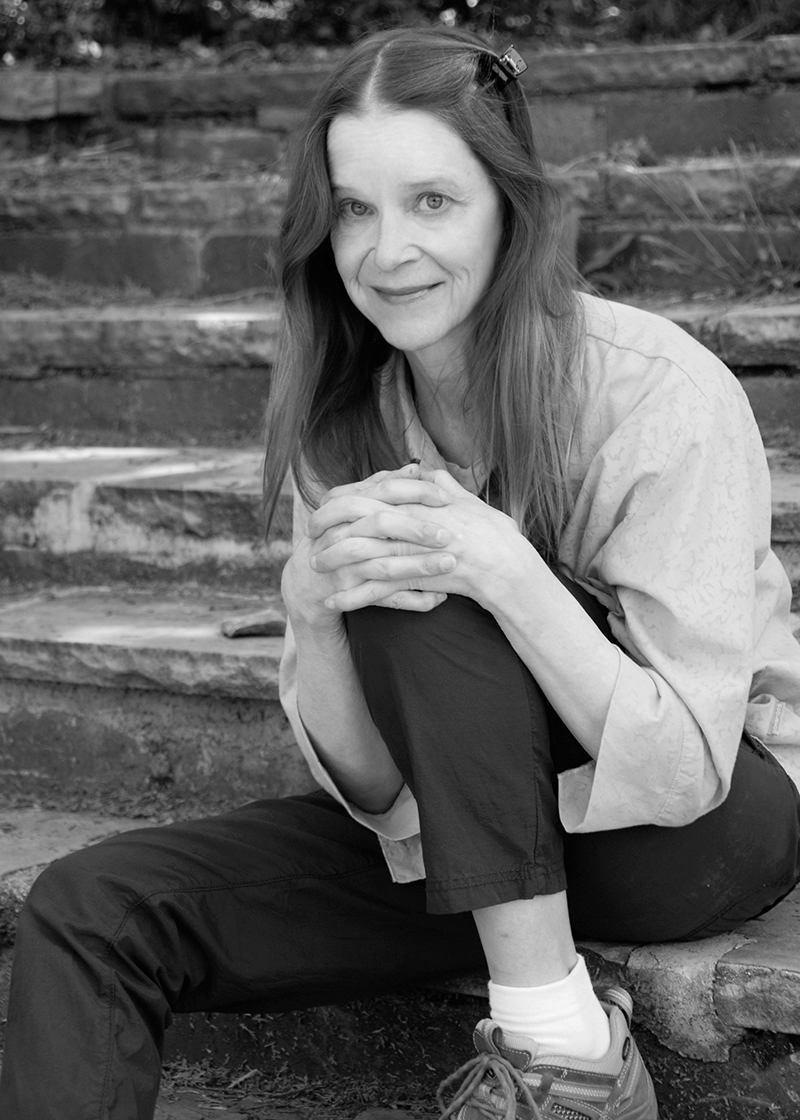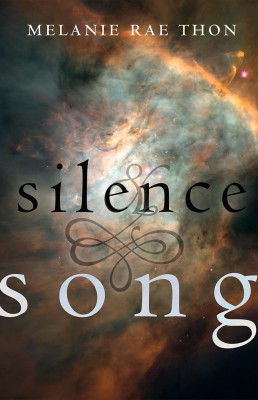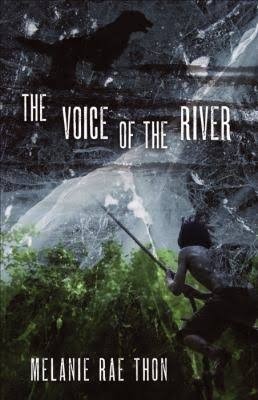
Melanie Rae Thon: The Landscape of Language
Art
Imaginative experience is a tenet of author Melanie Rae Thon’s written work, which examines the subtle, complicated and profound beauties of life through animated, lyrical storytelling. As a professor of Creative Writing and Environmental Humanities at the University of Utah and an author of four novels and three short story collections, Thon has committed her life to this discipline. Her latest book, Silence & Song, sets that vision across borderlands and nuclear evacuation zones.
The sensu ous world of nature and the magic of human experience often percolate in Thon’s writing and teaching. Her 2011 novel, The Voice of the River, probes the experiences, memories, thoughts and perceptions of a community that has come together in search of a missing boy and his dog. Amid the tense, harrowing hunt, Thon’s lyrical, imaginative language sings with cosmic ecological consciousness and microscopic insight. “There’s terrifying human drama going on at the core of [The Voice of the River] …” she says, “but the whole fluid human and more-than-human environment is flooded with extravagant life. I wanted to celebrate that life while also giving attention to human fear and transience—intimate, human loss.”
ous world of nature and the magic of human experience often percolate in Thon’s writing and teaching. Her 2011 novel, The Voice of the River, probes the experiences, memories, thoughts and perceptions of a community that has come together in search of a missing boy and his dog. Amid the tense, harrowing hunt, Thon’s lyrical, imaginative language sings with cosmic ecological consciousness and microscopic insight. “There’s terrifying human drama going on at the core of [The Voice of the River] …” she says, “but the whole fluid human and more-than-human environment is flooded with extravagant life. I wanted to celebrate that life while also giving attention to human fear and transience—intimate, human loss.”
Comprising two lyric fictions hinged by a short prose poem, Silence & Song invigorates Thon’s expressive humanity. The book’s first narrative, “Vanishings,” investigates the Sonoran borderlands—a modern Wild West of splintered cacti and bones underneath expansive starlight, a map for “problem bears” and resilient migrants crossing the border into the United States. The book’s formal composition swirls with a multitude of characters, voices and omniscient thoughts fluttering across its pages in Thon’s poetic prose, blending vivid reality with surreal imagination. “I’m interested in what people think under those circumstances—the complicated emotional context,” Thon says. “All perception is an intricate, multi-dimensional, infinite web of associations: memory, speculation, experience, sensation, imagination. … Everything we ‘know’ and believe to be true is based on faith; neverending interdependent galaxies of relationships; how we choose to frame and integrate our perceptions; how often and how passionately we heighten our awareness. These associations are inchoate, subvocal. Any effort to articulate them as they occur immediately slows and alters our expansive—perhaps limitless—ability to be in the eternal moment.”
In addition to the sensory galaxies of poetic language, Thon inflects her work with sonorous reverberation, reading sentences again and again before committing to them. “We speak not only mind to mind, but body to body,” she says. “For me, the sonic quality of the work is as important as the sense each reader makes of the words.” Silence & Song intones a poetic rhythm that billows with the presence of Thon’s powerful timbre. For Thon, the sensory experience of her work can act as a catalyst for perception. “Language can sometimes go beyond verifiable experience, evoking—or at least suggesting—those astonishing webs of associative perception,” she says.
 Thon’s spiritual wonder fills her work with reciprocity, inviting readers to re-experience and re-examine their own relationships with infinite worlds and time around them. In Silence & Song, amid the voices of migrants traversing the desert, of liquidators of Chernobyl and of a junkie killer’s sister, a concert of the wild—honeybees, bats, saguaros and pecan trees—thrives; vertebrae, granite, thunder and stars exist in expansive time. “For me, it’s healing to live outside an anthropocentric vision of life, to recognize that absolutely everything is interdependent, that we are always in relationship with many things simultaneously,” Thon says. “… To embrace this fully is be free of fear. Every form dissipates, but life through all time and space continues” Thon says.
Thon’s spiritual wonder fills her work with reciprocity, inviting readers to re-experience and re-examine their own relationships with infinite worlds and time around them. In Silence & Song, amid the voices of migrants traversing the desert, of liquidators of Chernobyl and of a junkie killer’s sister, a concert of the wild—honeybees, bats, saguaros and pecan trees—thrives; vertebrae, granite, thunder and stars exist in expansive time. “For me, it’s healing to live outside an anthropocentric vision of life, to recognize that absolutely everything is interdependent, that we are always in relationship with many things simultaneously,” Thon says. “… To embrace this fully is be free of fear. Every form dissipates, but life through all time and space continues” Thon says.
Portraying another person or being’s experience—an act sometimes deemed appropriative—is an inherent facet of fiction writing, and this exploratory relationship between author and character buzzes throughout Thon’s work. “It’s not that I think I can be a honeybee, but I trust I can move into the relationship, the miraculous possibility-space between us,” Thon says. “I am not the man in the coma, but by moving into his life, I can imagine his experience: I can love what he loves. That’s interesting to me. That’s meaningful; that’s a spiritual journey. I’m interested in walking the paths of inquiry and discovery.” To achieve accuracy in her work, Thon researches topics endlessly. She says, “I want to be able to say, ’I know this; I’ve felt this; I’ve been here; I’ve experienced this; these are my honeybees, and I love them.’”
Both Silence & Song and The Voice of the River were published by Fiction Collective Two, an experimental, author-run small press with ties to fellow Utah-based writers Lance Olsen, Michael Mejia and Lynn Kilpatrick. “I find it incredibly liberating not to have any final notions about rules or barriers,” Thon says. “It’s made me much more experimental in my work, much less invested in any particular readership. … This freedom is thrilling. If you’re not taking risks, there’s no reason to write anything.”
Such freedom, as well as feedback from a community of like-minded artists, is refreshing in a culture that’s often weighed down by convention. For Thon, there is no writing without feedback. “I can sit around and be contemplative and thoughtful,” she says. “I can be one of those hermits in the desert—and that has its great appeal to me—but there’s a way in which the mind and the spirit spark in the classroom. What one discovers as a community far surpasses, for me at least, what I can ever hope to perceive and imagine on my own.”
Discover the work of Melanie Rae Thon at fc2.org/authors/thon/thon.html. Her upcoming chapbook, The 7th Man, can be purchased at New Michigan Press, thediagram.com/nmp.
